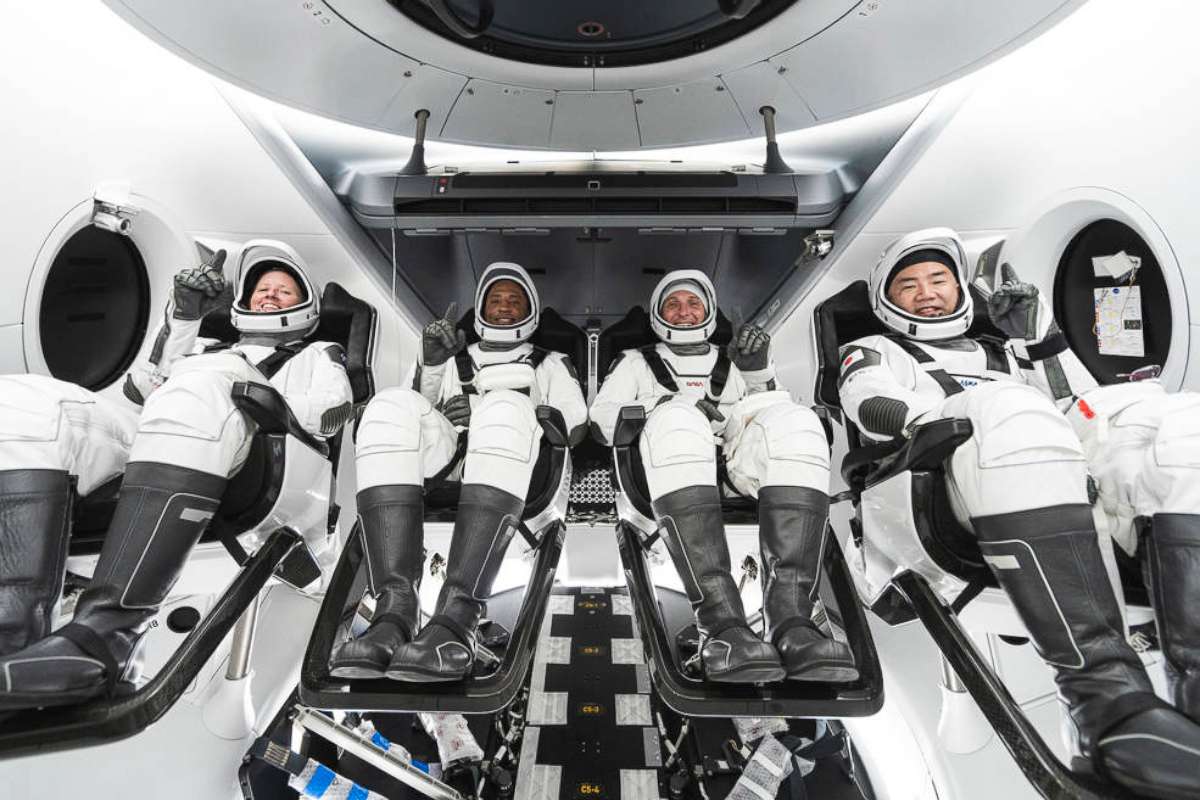NASA and SpaceX targeting Nov. 14 for next crewed launch to ISS
SpaceX expressed confidence an engine issue that delayed the launch was fixed.
In just a few weeks, NASA and SpaceX are set to launch a diverse crew of astronauts to the International Space Station as part of the Crew Dragon spacecraft's first operational flight.
The NASA SpaceX Crew-1 mission is currently scheduled to launch on Nov. 14, after a slight delay to assess an issue with the Falcon 9 rocket's engine. In a news conference Wednesday, NASA and SpaceX leaders expressed confidence that the issue had been resolved.
The next mission comes on the heels of the successful launch and return of NASA-SpaceX astronauts Doug Hurley and Bob Behnken this summer with the Demo-2 mission that made history by bringing launch capabilities back to U.S. soil for the first time in nearly a decade.
The next batch of NASA-SpaceX astronauts includes a Space Force colonel, a Black pilot leaving Earth for the first time, a woman who has logged nearly 4,000 hours in space and a Japanese Aerospace Exploration Agency astronaut.
The crew is comprised of NASA astronauts Michael Hopkins, Victor Glover and Shannon Walker as well as JAXA astronaut Soichi Noguchi.
Hopkins, the commander of the mission, has spent 166 days in space and completed multiple space walks. The Missouri native formerly worked as a flight test engineer with the Air Force prior to joining NASA.
This will be the first spaceflight for Glover, the pilot and second-in-command for the mission. A native of California, Glover was selected as an astronaut in 2013 and is a former Naval aviator.

Walker is the team's mission specialist. She is an ISS veteran, having spent 161 days aboard the orbiting laboratory in 2010 conducting numerous experiments.
Noguchi, also a mission specialist for the crew, is the first international NASA-SpaceX crew member. Noguchi has been on two spaceflights and made history as the first Japanese astronaut to perform a spacewalk outside the ISS in 2005.
The crew is slated to stay aboard the ISS for six months and conduct science experiments and help with maintenance on the multibillion dollar orbiting laboratory.
"I know that the science community is looking forward to having all those arms and legs on orbit to be able to help them be able to accomplish their goals for this increment," Kathy Lueders, NASA's associate administrator and human exploration and operations mission directorate, said at a news conference Wednesday.
The crew is currently in a "soft quarantine" with their families before heading into a more stringent quarantine this Saturday ahead of the launch, according to Steve Stich, the manager of NASA's Commercial Crew Program.
Late last month, the crew said they were naming their spacecraft "Resilience" -- a nod to the ability to overcome a myriad of challenges thrown at them during this tumultuous year marked by a global pandemic.
"As you look at the definition of resilience, I know it means functioning well in times of stress or overcoming adverse events, and I think all of us can agree that 2020 certainly has been a challenging year," Hopkins said at a news conference.
"So the name 'Resilience' is really in honor of the SpaceX and NASA teams, and quite frankly, it's in honor of our families, of our colleagues, of our fellow citizens, of our international partners and our leaders that have all shown that same quality, that same characteristic, through these difficult times," he added.




